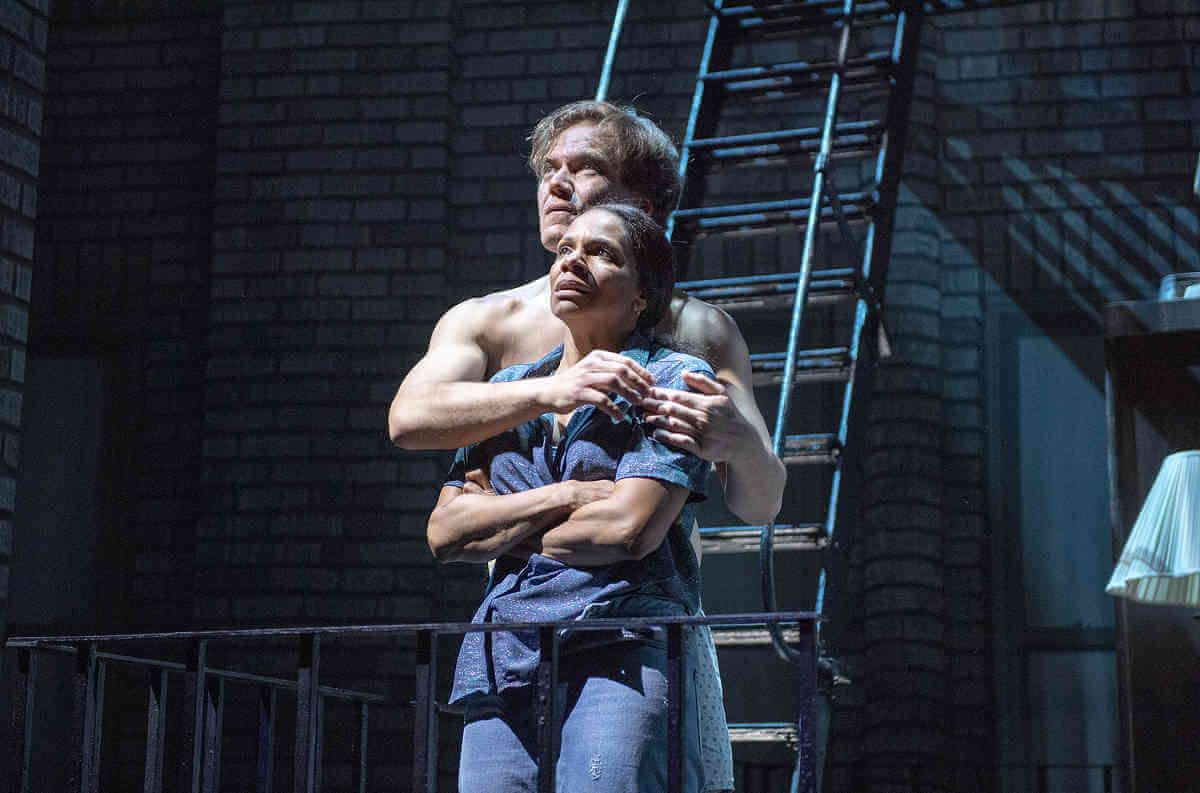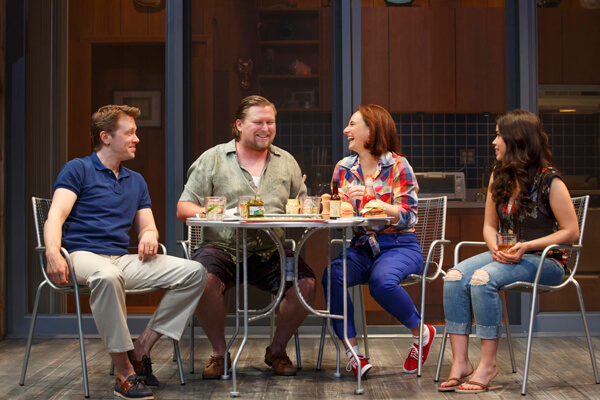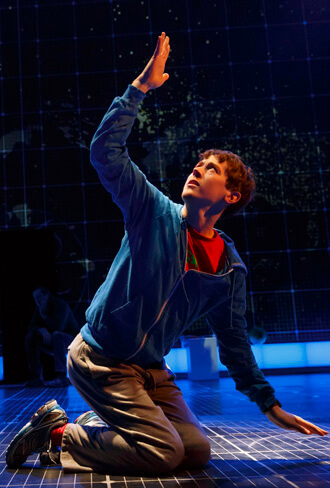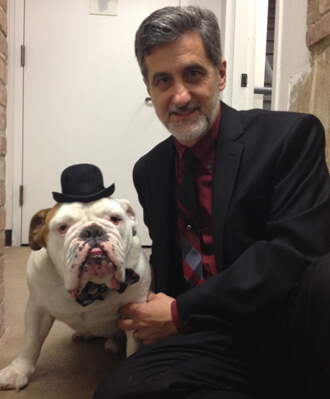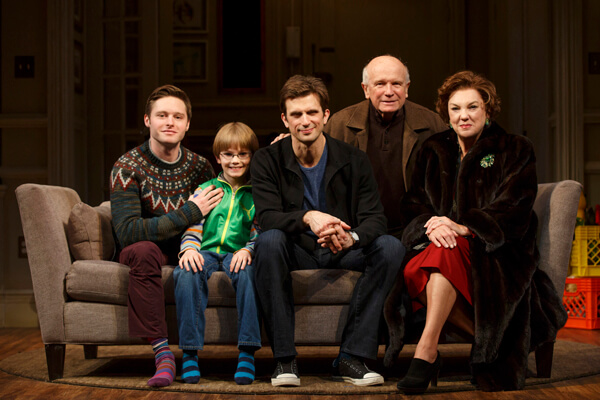Sex is easy. Establishing — more accurately, negotiating — real, human connection can be treacherous. Finding a safe haven in the heart of another person in a cold world is the central narrative of Terrence McNally’s “Frankie and Johnny in the Clair de Lune.” Although the play is more than 30 years old, the timelessness of that theme is what makes the magnificent production now on Broadway heartbreakingly contemporary. When sex is easily available at a click or a swipe and engaged in with no strings attached, what used to be the consummation of a courtship is reduced to a physical and inherently unromantic and isolating commodity.
“Frankie & Johnny” begins with sex. Noisy, enthusiastic sex that rocks the sofa bed in a down-at-heels New York apartment. It’s the kind of first date romp where sex doesn’t mean much more than the release of pent up energy with another willing player. The pair met at the diner where they work. Frankie is an actress/ waitress and Johnny is the new short order cook. A movie date turned into an invitation to come in. Yet when intercourse ends in hilarity as Frankie tumbles to the floor and Johnny recounts a tale of an ill-timed fart in a past, teenage tryst, they find they are actually with another real person. It’s a beautiful moment.
What’s so moving about this production — certainly compared to others I’ve seen, including the 1987 original — is how fragile this Frankie and Johnny are as they negotiate getting to know each other. The dichotomy between the ease with which they jumped into the sack and the almost unsurmountable challenge of being emotionally naked with one another is the core of the play. Frankie sees herself as damaged goods, barely healed from an abusive relationship — terrified and resistant to anything more than sex, which provides physical release, an illusion of connection while leaving the heart protected.
Johnny, who endured a stint in prison, is likewise a product of failed relationships and tired of looking for a partner. He falls in love with Frankie desperately and quickly because he instinctively knows she’s exactly what he wants, and his willingness to take the chance on the unknown is at odds with Frankie’s desire to run away. Johnny’s argument, one that gives the production much of its contemporary appeal, is that waiting for perfection is based in fear. Without risk — even the risk of more pain — the play argues, we are, to a certain extent, already dead, and that resonates today in a world where hookups, sex buddies and ghosting all keep people at a distance from one another.
The play is simple and beautifully orchestrated, and like Bach’s “Goldberg Variations,” which feature early in the play, each variation on the theme of love and connection that unfolds through the scenes brings us closer to each character as they slowly and gracefully reveal their naked souls. The final image of Frankie and Johnny together expresses an intimacy far more powerful and telling than the carnality that opened the play.
Director Arin Arbus beautifully brings the piece to life. It doesn’t hurt that Audra McDonald is playing Frankie and Michael Shannon is Johnny. McDonald is in top form, giving Frankie a richness and complexity that is consistently fascinating and touches something in each of us. Shannon is equally nuanced in his performance, though it is much more outwardly focused. The clarity of his choices as an actor reveal Johnny’s internal conflicts, making him sympathetic, appealing, and sexy. His never-wavering belief in the possibility of connection with Frankie drives much of the play. The inspired set by Riccardo Hernández underscores that this is just one story in a city of millions, and Natasha Katz’s lighting is both functional and evocative, perfectly matched to the piece.
After two hours with these broken, searching characters, it’s impossible to leave the theater without being deeply touched. All of us have some of Frankie and Johnny competing within us. For all our poses, we want what they want. Give us each some moonlight and the willingness to take a chance and who knows what can happen?
FRANKIE AND JOHNNY IN THE CLAIR DE LUNE | Broadhurst Theatre, 235 W. 44th St. | Through Aug. 25: Tue., Thu. at 7 p.m.; Wed., Fri.-Sat. at 8 p.m.; Wed., Sat. at 2 p.m.; Sun. at 3 p.m. | $49-$159 at telecharge.com or 212-239-6200 | Two hrs., 15 mins,, with intermission

